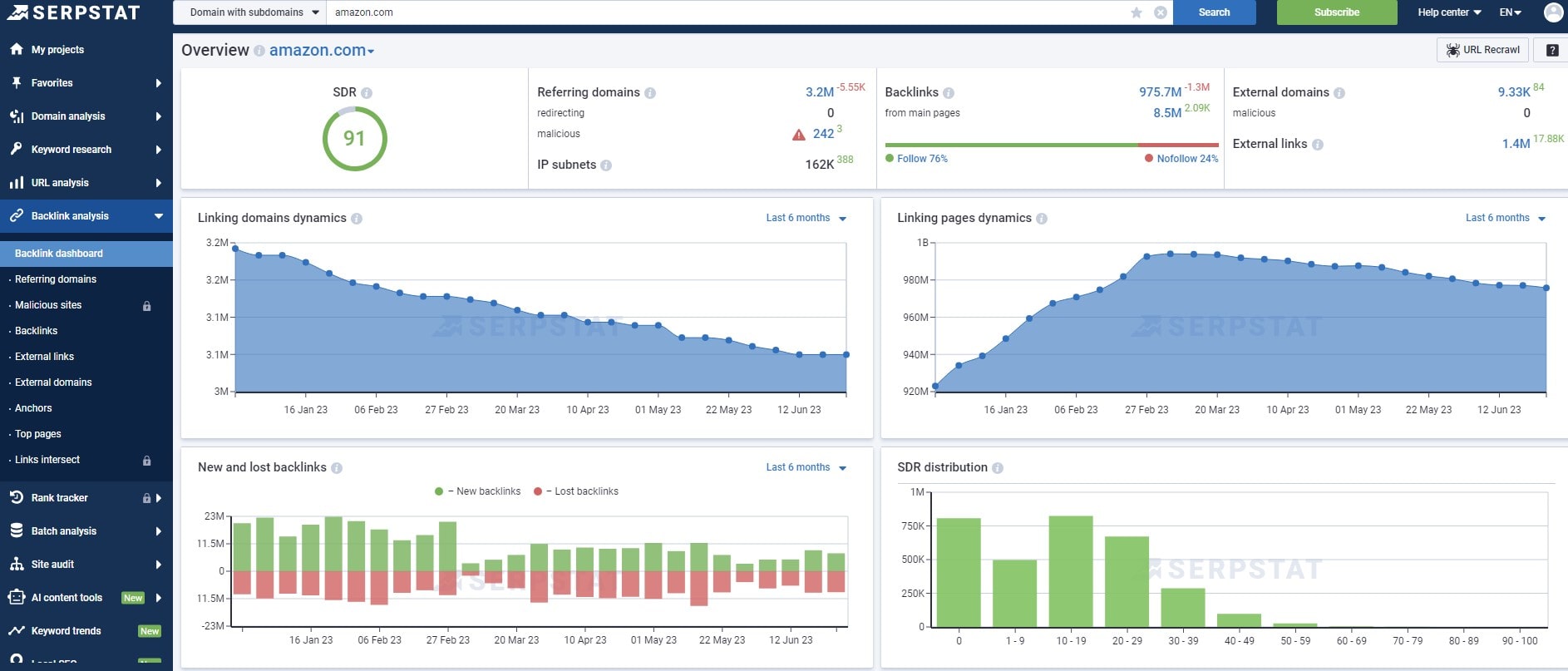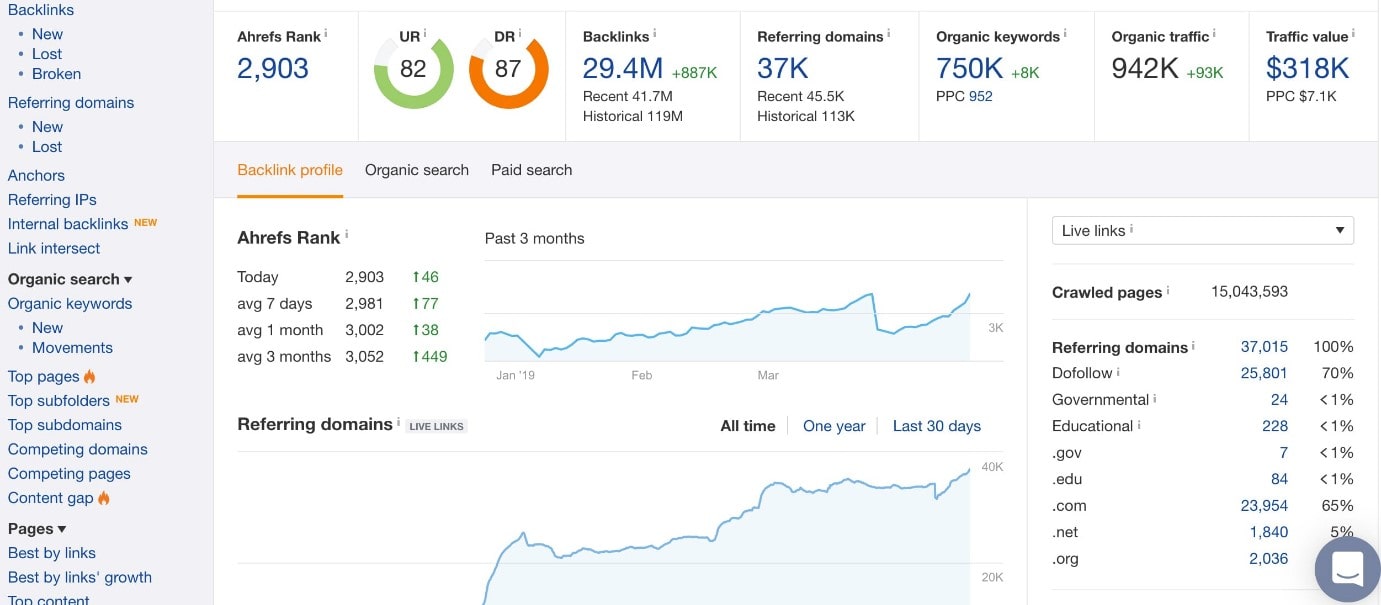Not all SEO strategies sparkle. Enter Black Hat SEO – the darker side of optimization, where shortcuts and tricks might give a quick boost but often lead to long-term pitfalls. It’s essential to pinpoint and steer clear of these black-hat strategies:
- Sneaky redirects
- Invisible text
- Keyword stuffing

While it’s tempting to jump on the fast track to rankings, these methods often backfire, causing more harm than good. Plerdy, a must-have tool for CRO & UX, stays miles away from such shady practices, emphasizing ethical SEO that genuinely benefits users. Dive into this article, familiarize yourself with these ten black-hat tactics, and make sure your site stays clean and green in the SEO jungle. Boost your strategies, avoid the black marks, and ensure your SEO endeavors remain on the up-and-up. Let’s stay transparent and thrive together! 🌱🚫🎩.
Definition of Black Hat SEO
Black Hat SEO refers to aggressive and manipulative tactics aimed at boosting a website’s search engine rankings, irrespective of violating search engine guidelines. Employing Black Hat SEO can indeed deliver quick results; however, it places the website at significant risk of penalties. This unethical approach to SEO frequently involves:
- Overstuffing keywords
- Implementing invisible text
- Manipulating links
Professionals within niche markets, such as e-commerce and blogging, often succumb to Black Hat SEO in an attempt to outpace their competition swiftly. For example, a fashion blog might excessively use the term “latest trendy dresses” or an online gadget store might over-optimize for “best affordable smartphones.” Such practices don’t just harm the user experience but also tarnish the website’s reputation in the eyes of search engines. As a staunch advocate against Black Hat SEO, it’s crucial for us to emphasize that sustainable success in SEO stems from ethical practices and quality content, steering clear of the quick fixes that Black Hat SEO appears to offer. In essence, Black Hat SEO is a risky shortcut that jeopardizes a website’s standing and integrity in search engine rankings.
The Difference Between Black Hat and White Hat SEO

In the vast landscape of SEO, the terms “Black Hat” and “White Hat” reign supreme. These terms distinguish between two primary strategies in the optimization world. Black Hat SEO, often seen as the dark side, employs tactics that aim for quick wins but violate search engine guidelines. On the other hand, White Hat SEO prioritizes ethical strategies that align with search engine best practices, ensuring long-term benefits and trustworthiness.
Distinguishing characteristics include:
- Black Hat SEO:
- Keyword stuffing: Overloading content with repetitive terms
- Cloaking: Showing search engines different content than what users view
- Spammy links: Acquiring or distributing links with no genuine relevance
- White Hat SEO:
- Quality content: Producing valuable and original content for users
- Natural link building: Earning links through genuine relationships and high-quality content
- Technical optimization: Improving site speed, mobile-friendliness, and structured data for enhanced user experience
For instance, an organic food blog might focus on producing authentic, well-researched articles (White Hat), while a competing site might simply stuff articles with trending keywords (Black Hat). Black Hat SEO may yield short-term gains, but White Hat SEO builds long-term search engine credibility. Always opt for genuine optimization methods for lasting success.
The Potential Consequences of Employing Black Hat SEO
Venturing into the world of Black Hat SEO can seem tempting. The promise of rapid results might draw in businesses from various niches, be it e-commerce stores or travel blogs. But this risky approach to SEO comes with a steep price. Websites that dive deep into Black Hat tactics often face:
- Penalties: Search engines, especially Google, don’t hold back from penalizing sites caught using Black Hat techniques. These penalties can range from ranking drops to complete removal from the index.
- Loss of Trust: Once users catch on to manipulative tactics – like a tech blog that spins content – they’re likely to bounce off and never return. This erodes brand credibility and drives away potential customers.
- Short-lived Success: While Black Hat SEO might shoot up a website’s rank momentarily, it’s not sustainable. An e-commerce site pushing fake reviews will soon find its competitors outpacing it using genuine SEO efforts.
- Increased Vulnerability: Engaging in Black Hat practices, such as cloaking, can open up websites to security threats, compromising user data.
By sidestepping the ethical path of SEO and opting for Black Hat strategies, sites put themselves in a precarious position. It’s not just about falling from grace in the search engine’s eyes, but also risking the very foundation of your online business. Opting for Black Hat might be a swift move, but it’s a fall waiting to happen.
10 Black Hat SEO Tactics to Be Wary of in 2023
Examining the roster of “What Constitutes Black Hat SEO? 10 Unethical SEO Strategies to Eschew” reveals a trove of cautionary tales for SEO aficionados. To navigate the intricate labyrinth of SEO successfully, one must adopt a white hat mindset, steering clear of black hat ploys that can swiftly lead to digital obscurity. These forbidden techniques may offer fleeting gratification, but in the grand scheme of search engine dominance, they spell doom.
Overloading Content With Repetitive and Irrelevant Keywords
Black Hat SEO tactics like stuffing material with unrelated keywords are outdated yet still employed. This black-hat SEO strategy aims to deceive search engines into ranking pages higher based on sheer keyword volume, rather than genuine relevance or quality. Let’s delve into this dodgy technique:
- Tactic Insight: Websites might pepper their articles with hot-topic keywords, even if unrelated. For instance, a pet care blog suddenly injecting “trending sneakers 2023” into its posts.
- User Experience: Overloading content not only jeopardizes SEO efforts but also disrupts user engagement. Readers seek coherence, not a jumble of out-of-place terms.
- Search Engine Consequences: Modern search algorithms have caught on to this tactic. Websites that still hang onto this outdated Black Hat method risk severe penalties, pushing them down in rankings.
- Dilution of Message: Businesses that use this Black Hat technique often dilute their core message. An online tea store emphasizing “best digital cameras” won’t build trust or retain its audience.
Recognizing the pitfalls of overloading content helps in steering clear of this detrimental Black Hat SEO strategy. Instead, focus on crafting genuine, relevant content that resonates with readers and aligns with search engine best practices.
Presenting Different Content to Search Engines than What Wsers See
Cloaking—presenting different material to search engines than real users—is a Black Hat SEO strategy. This deceptive method aims to boost rankings under false pretenses, but it’s a strategy riddled with pitfalls.
- Behind the Curtain: Imagine an e-commerce site selling organic skincare. While users see authentic product listings, search engines might be fed articles on “top-rated smartphones.” It’s a mismatch, a blatant attempt to tap into popular search trends.
- Spotting the Deception: Advanced algorithms employed by search engines today can sniff out such inconsistencies. Sites caught in the act face harsh penalties, including de-indexing.
- A Jarring User Experience: If a user clicks on a link expecting information on the latest vegan recipes but lands on a page about mountain biking, their trust is shattered. This breach can lead to increased bounce rates and diminished brand credibility.
- Missed Opportunities: By focusing on Black Hat SEO strategies, businesses sideline the genuine value they could offer to their audience. Duplicity becomes the forefront, overshadowing authentic content and meaningful interactions.
Cloaking might offer a temporary boost in visibility, but the risks attached make it a perilous path. Embracing ethical SEO practices not only builds trust with your audience but ensures you remain in the good books of search engines, setting the stage for sustainable growth.
Doorway Pages
Delving deep into the darker corners of Black Hat SEO, doorway pages emerge as a notorious strategy designed to mislead. Essentially, these are pages crafted specifically to rank high for certain search queries, only to funnel users to a different page altogether. Though once a prominent Black Hat method, its utility has waned due to rigorous search engine scrutiny.
- A Cloaked Entry: Consider an online boutique selling artisanal jewelry. They might set up pages targeting “affordable luxury watches” but redirect visitors to their main necklace collection, bypassing the expected content.
- Detections and Repercussions: Search engines, with their cutting-edge algorithms, zero in on these deceptive maneuvers. Engaging in such Black Hat SEO tactics can earn your site penalties, pushing it down the abyss of rankings.
- User Trust Erosion: Misdirection might land some initial clicks, but it wears down trust rapidly. Users expect relevance – meeting bait-and-switch tactics can deter them from revisiting.
- A Focus Shifted: Relying on doorway pages means missing out on opportunities to genuinely engage with your audience. The time spent creating these trap doors could be better invested in producing authentic content that resonates with users.
In the evolving landscape of SEO, Black Hat shortcuts like doorway pages find themselves increasingly obsolete. Brands aiming for longevity and credibility should sidestep such tactics and focus on fostering genuine connections with their audience.
Private Blog Networks (PBNs)
In the murky waters of Black Hat SEO, Private Blog Networks, or PBNs, stand out as a high-risk tactic. Essentially, a PBN consists of a cluster of websites used to build links to a single site, artificially inflating its SEO value. By taking control of multiple domains, black hat enthusiasts aim to manipulate search rankings in their favor.
- Master of Disguise: An auto dealership might operate multiple blogs on classic cars, off-roading adventures, and vehicle maintenance. Each blog, though seemingly independent, funnels link juice to the main dealership’s site, attempting to bolster its SEO.
- Risky Business: Major search engines have ramped up efforts to clamp down on PBNs. Detection can lead to swift penalties, often wiping out the intended SEO benefits overnight.
- Shaky Foundations: Basing an SEO strategy on PBNs is like building on quicksand. With ever-improving algorithms, it’s only a matter of time before the ground gives way.
- Genuine Growth Over Gimmicks: Rather than investing time and resources into shadowy black hat tactics like PBNs, brands should hone in on creating authentic, value-driven content that truly engages the audience.
In the dynamic realm of SEO, lasting success stems from authenticity and user-centric approaches. PBNs, with their fleeting advantages and looming risks, represent a bygone era of Black Hat shortcuts. Modern brands would do well to steer clear and chart a course based on trust and quality.
Buying Links

Diving into the trenches of Black Hat SEO, buying links emerges as a particularly dubious tactic. It involves shelling out money to acquire inbound links, hoping to bolster a website’s search engine rankings artificially. While the allure of a quick SEO boost can tempt many, the risks tied to this black hat approach far outweigh any perceived benefits.
- Flashy Promises: A local bakery might be enticed by an offer to get featured on multiple food blogs for a fee. While initially boosting visibility, this tactic can backfire.
- Search Engine Backlash: Search engines have caught on and routinely penalize sites linked to paid link schemes. The aftermath? Plummeting rankings and diminished online credibility.
- Trust Erosion: Savvy internet users can often spot and call out paid links, leading to erosion in brand trust and reputation.
- Temporary Lift: Even if not detected immediately, the benefits of bought links are fleeting. The SEO landscape constantly evolves, and shortcuts rarely stand the test of time.
In the ever-changing sphere of SEO, integrity remains paramount. While buying links might offer a quick thrill, genuine, organic growth stands as the gold standard. Forging authentic connections and delivering valuable content triumphs over the fleeting allure of black hat shortcuts.
Spinning Content
Spinning content is a dirty trick in black hat SEO. At its core, content spinning takes existing online material, tweaks it slightly—often via automated software—and republishes it, hoping search engines won’t detect the trickery. This black hat SEO strategy attempts to sidestep the hard work of original content creation, but it comes with considerable pitfalls.
- Distorted Readability: An online fashion boutique might spin a popular blog post about summer trends. The result? A jumbled mess that doesn’t resonate with readers.
- Search Engine Scrutiny: Modern search engines, with their advanced algorithms, zero in on spun content, leading to potential penalties and rank drops.
- Brand Damage: When users spot regurgitated content, trust erodes. A fitness instructor pushing out spun articles, for instance, could lose credibility fast.
- Unsustainability: While spinning might offer temporary gains, it’s a house of cards. The black hat benefits diminish as search engines evolve and tighten their nets.
In the intricate dance of SEO, authenticity and originality remain kingpins. The siren call of shortcuts, like content spinning, may be tempting, but the genuine connection and value-driven content reign supreme. It’s essential to keep in mind: while black hat tactics might promise quick fixes, the road to enduring SEO success is paved with integrity.
Hidden Text and Links
Hidden text and links are part of black hat SEO. Crafty webmasters use CSS tricks, matching text color to backgrounds, or setting font size to zero to camouflage these elements. Their goal? To deceive search engines without affecting user experience. This black hat approach, while clever, ultimately diminishes website integrity.
- Deceptive Indexing: A digital photography website might bury terms like “best DSLR camera” in hidden text, attempting to rank without relevant content.
- User Trust Deterioration: An e-commerce site hiding links to unrelated products can alienate visitors when they accidentally stumble upon them.
- Search Engine Backlash: The search engines have caught on. Penalties for these techniques drove websites into SEO oblivion.
- Missed Opportunities: Authentic content and genuine link-building foster organic growth. By opting for hidden techniques, brands skip the chance to genuinely connect.
Black hat tactics like hidden text and links might provide a fleeting boost, but sustainable SEO success hinges on transparency. As the digital landscape evolves, keeping things above board ensures lasting trust and rank stability. In the end, genuine content and white hat strategies outshine the temporary dazzle of black hat shortcuts. Remember, in the digital race, it’s the authentic that leads, not the deceptive.
Comment Spamming

Comment spamming is a notorious black hat SEO tactic. Crafted to artificially boost website backlinks, this black hat method involves dropping irrelevant or promotional links in the comments section of blogs or forums. Its initial allure? The hope of a quick SEO surge. But the ripples it sends across the digital landscape can be detrimental.
- Trust Erosion: Imagine visiting a fitness blog only to wade through comments pushing unrelated e-commerce deals. Instant red flag, right?
- Site Reputations at Stake: Owners of forums and blogs where spam occurs bear the brunt, facing potential loss in credibility.
- SEO Backfire: Search engines aren’t easily fooled. They catch on to comment spamming, leading to penalties and diminished rankings.
- Missed Authentic Engagement: By spamming comments, businesses squander genuine engagement opportunities. Engage honestly, and you’ll foster loyalty.
Black hat tactics like comment spamming might seem tempting for an immediate SEO uptick, but the lasting fallout isn’t worth it. In today’s digital narrative, authenticity and genuine interaction shine brighter than black hat shortcuts. Navigate the SEO landscape with integrity, and you’ll find lasting success. Remember, it’s genuine connections, not contrived tactics, that truly resonate.
Negative SEO
In the intricate tapestry of online success, black hat techniques have carved out a dubious niche. Among the most insidious is negative SEO—a deliberate attempt to tarnish a competitor’s search rankings using a range of black hat tactics.
- Backlink Bombardment: Unscrupulous entities might flood a site with low-quality, toxic backlinks, hoping search engines will flag and penalize it.
- Content Sabotage: Some take it a step further, duplicating content across the web, leading to potential copyright issues and SEO confusion.
- Server Overload: The most audacious might unleash bots to artificially ramp up a site’s traffic, intending to crash it.
An e-commerce site, for example, might experience an unexpected decline in its rankings due to a competitor employing negative SEO. Without swift action, the resulting lost traffic could mean decreased sales, dwindling customer trust, and a tarnished reputation.
The digital landscape can be fraught with such hazards. But here’s the silver lining—equipping oneself with knowledge about black hat methods like negative SEO ensures you can counteract or even prevent such attacks. In the long run, embracing ethical SEO practices will not only ward off black hat threats but also solidify your standing in the digital ecosystem. The message is clear: play fair, stay vigilant, and success will follow in its wake.
Over-Optimized Anchor Text
Within the digital landscape, SEO enthusiasts sometimes veer off the ethical path, enticed by black hat tactics. Over-optimizing anchor text ranks high among such missteps. This strategy involves saturating backlinks with exact-match keywords in hopes of boosting rankings. But in the ever-watchful eyes of search engines, it’s a glaring misfire.
- Spotting the Misstep: If an online shoe store consistently links the phrase “best leather shoes” across multiple sites, search engines pick up on this redundancy.
- Penalty Phase: Go overboard with this, and search engines might hand down penalties, pushing your site deep down in rankings.
- Natural Flow: Ideal SEO maintains a diverse and natural-looking anchor text profile, preventing search engine red flags.
For instance, a budding fashion blog might slip into this trap, overusing specific trendy keyword phrases. The initial uptick in traffic could seem promising, but this black hat tactic will eventually catch up, sidelining genuine growth prospects. To truly thrive in the vast online marketplace, sidestepping such black hat pitfalls and fostering organic, white-hat SEO strategies is paramount. The narrative remains unwavering—shortcuts might offer fleeting success, but genuine, ethical practices lay the foundation for sustainable digital triumphs.
The Downfalls of Using Black Hat SEO

In the intricate web of online marketing, some marketers get drawn into the allure of black hat SEO, eyeing rapid gains and quick triumphs. Yet, the fallout from embracing these tactics often outweighs the initial perks.
Consider a healthcare website that tries to manipulate search engine algorithms. By stuffing pages with keywords like “best vitamins” or hiding links to gain traction, they might initially see a surge in visitors. But soon, the consequences start to roll in:
- Search Engine Penalties: Algorithms, especially those of industry giants, constantly evolve to detect and punish black hat SEO tactics. Once flagged, websites can plummet in rankings, making recovery a daunting task.
- Eroded Trust: Users can sense when content isn’t genuine. Over-optimized sites or those with hidden links can deter potential customers, leading to lost revenue.
- Short-lived Success: While a pop-up e-commerce site might benefit momentarily from black hat strategies, the lack of sustainability ensures they’ll fizzle out soon.
- Legal Consequences: Brands can face lawsuits for deceptive practices, tarnishing their reputation indefinitely.
Instead of diving into the murky waters of black hat SEO, focus on building organic strategies. Authentic content, genuine backlinks, and a user-centric approach are the true hallmarks of online success. In the vast digital landscape, black hat methods might seem enticing, but the fallout is inevitable. To carve out a resilient digital path, invest in white-hat SEO, and watch as enduring success unfurls.
The Importance of Ethical SEO Practices

Delving into the vast expanse of online marketing often means navigating the tightrope between black hat and ethical SEO strategies. Each step can shape a brand’s digital fate. Picture an organic farm’s website aiming for wider reach. Opting for black hat tactics might give them a fleeting boost, but genuine growth stems from ethical SEO.
Highlights of embracing ethical strategies include:
- Sustained Rankings: Search engines reward sites that consistently adhere to best practices, ensuring long-term visibility.
- Genuine Engagement: Rather than tricking users, ethical SEO draws in genuinely interested visitors who’ll likely become customers.
- Reputation Preservation: Steering clear of black hat methods keeps brands from dreaded penalties and maintains their reputation.
- Future-Proofing: As algorithms evolve, websites anchored in ethical practices face fewer upheavals, making tweaks rather than overhauls.
For instance, a local artisanal bakery, instead of hiding unrelated keywords, can produce content around their unique bread-making process or engage in collaborations. By shunning the shadows of black hat and embracing ethical SEO, they not only capture their audience’s palate but also their trust.
In the digital age, shortcuts like black hat might offer instant allure, but it’s the commitment to ethical SEO that crafts lasting legacies. Brands striving for authenticity, enduring success, and robust digital footprints should make ethical SEO the cornerstone of their strategies. It’s not just about ranking higher; it’s about rising right.
Conclusion
In conclusion, a meticulous review of “What Is Black Hat SEO? 10 SEO Tactics To Avoid” underscores the critical importance of steering clear from the treacherous waters of black hat practices. These illicit techniques may promise quick gains, but they come at a steep price. It’s imperative to maintain a white hat SEO approach, aligning with ethical standards and strategies for long-lasting success.
🔍 You can trust Plerdy to optimize your web visibility. Conduct SEO and UX analysis with ease, ensuring your website adheres to best practices and ranks favorably in the ever-evolving SEO landscape.
🚀 Elevate your SEO game and avoid the pitfalls of black hat SEO. Trust in Plerdy for comprehensive analysis and optimization. Your digital success awaits.
